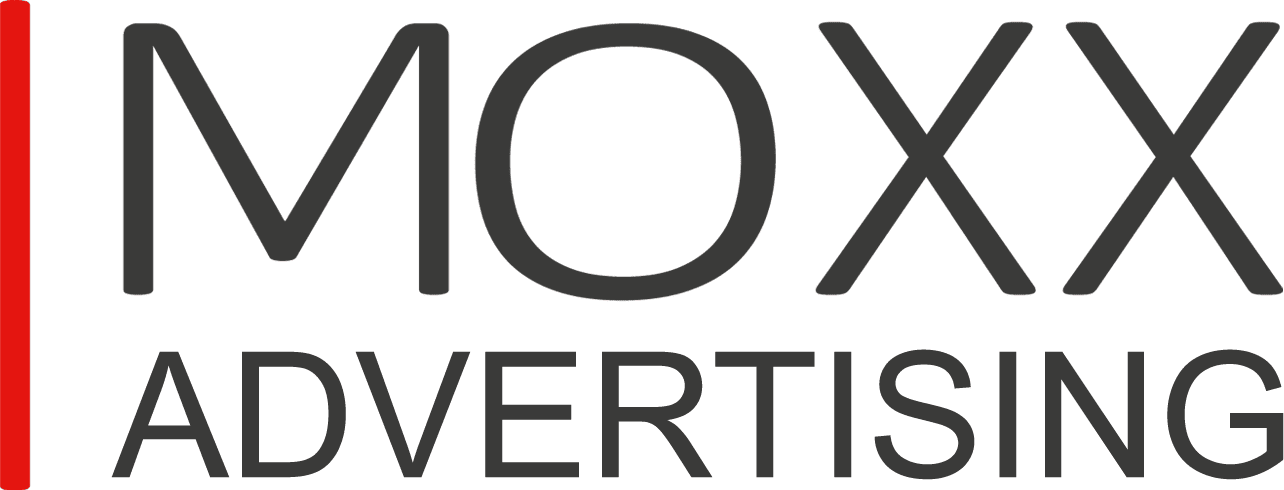Digital PR by MOXX Advertising
Digital PR is an extension of traditional PR but focused on the digital environment. Here, the skills of both PR strategists and IT specialists are paramount, as they work together to develop and implement a strategy for the growth of your digital PR. MOXX takes pride in having an experienced team with expertise in both directions, offering a full range of services related to building a reputable online image for companies, businesses, individuals, and legal entities.
What is digital PR?
PR is an abbreviation for ‘Public Relations,’ which signifies the strategic management of communication between organisations and their various target audiences with the goal of creating and maintaining a positive image and reputation. PR encompasses a range of activities and methods used to interact with the public, the media, and other relevant stakeholders.
The primary goals of PR include:
- Establishing and maintaining a positive image and reputation for the organisation or individual.
- Building trust and good relations with the public and the media.
- Managing crisis situations and addressing issues related to public affairs.
- Supporting informational and communication objectives through various tools such as press releases, media relations, social media, and more.
- Assisting in disseminating key messages and information to target audiences.
PR professionals work to foster positive relationships and interactions between organisations and the public to enhance the organisation’s reputation and achieve its goals. They also engage in analysing public sentiment, monitoring media coverage, and participating in the planning and execution of communication strategies.
PR specialists
PR specialists, also known as Public Relations specialists, are professionals who are responsible for managing the communication and interaction of organisations, brands, or individuals with the public, the media, and other interested parties. Their work is aimed at reputation management, building trust, and establishing positive relationships with various audiences. Here are some of the tasks and responsibilities of PR specialists:
- Strategic planning of PR campaigns: They develop strategies and plans for PR campaigns to achieve the client’s goals and target audience.
- Media relations: They establish and maintain relationships with journalists and media outlets to publish information and stories related to the client.
- Content creation: They generate content such as press releases, articles, blogs, videos, and more, which is used for communication with the public.
- Social media management: They create and manage social media profiles, post content, and interact with followers.
- Reputation building: They assist clients in building and maintaining a good reputation, managing crisis situations, and responding to negative accusations or news coverage.
- Influencer marketing: They collaborate with influential individuals and brand ambassadors to increase the client’s visibility among their followers.
- Analysis and measurement: They use analytical tools to track the results of PR efforts and provide analysis and reports.
- Public events and promotions: They organise events such as press conferences, product launches, and promotions to generate interest and media coverage.
- Building public relations: They interact with various audiences, including clients, investors, media, and the public at large.
PR specialists play a crucial role in managing the image and communication of companies, organisations, and individuals in today’s world, where public and media attention and influence are of paramount importance. They need to be well-informed, creative, and capable of adapting their communication to different audiences and circumstances.
Digital PR
Digital Public Relations (Digital PR) refers to the application of public relations (PR) in the online environment, using digital tools and platforms to manage communication, build reputation, and interact with target audiences. This type of PR focuses on utilising the internet and social media to achieve communication goals. Here are some key aspects of digital PR:
- Social media: Using platforms like Facebook, Twitter, Instagram, LinkedIn, and others to create strong online presences, share content, and engage with the audience.
- Online media and blogs: Collaborating with online media, bloggers, and influencers to publish articles, interviews, and reviews that support the reputation.
- Website and blog content: Creating high-quality content to be published on the organisation’s website or other online platforms to attract visitors and engage the audience.
- Newsletters and email marketing: Sending information and messages to subscribers and customers via emails to strengthen relationships and provide updates on news and events.
- Online campaigns and advertising: Planning and executing online PR campaigns and using digital advertising to achieve communication goals.
- Reputation management and crisis PR: Real-time online monitoring and response to crisis situations and negative comments on social media and other online platforms.
Digital PR plays a crucial role in modern communication strategies, as more and more people express themselves and communicate online. This type of PR helps organisations and brands establish a strong online presence, engage with the audience, and strengthen their reputation in the digital world.
Digital marketing
Digital Marketing is a marketing strategy and practice that uses digital tools and technologies to promote products, services, or brands. This type of marketing is conducted in the online environment using the internet, mobile devices, and other digital channels. Here are some key components of digital marketing:
- Website and Search Engine Optimisation (SEO): Creating and optimising a website to be visible in search engine results like Google. SEO involves keyword optimisation, technical factors, and content to improve the website’s visibility.
- Content marketing: Creating high-quality content in various formats such as articles, blogs, videos, infographics, and more, which is shared online to attract an audience and generate interest.
- Social media: Using platforms like Facebook, Twitter, Instagram, and LinkedIn for audience interaction, content sharing, and running marketing campaigns.
- Email and email marketing: Sending personalised emails with information, offers, and news to subscribers and customers.
- Paid advertising and advertising campaigns: Using advertising platforms like Google Ads, Facebook Ads, and others to gain more visibility and target an audience.
- Mobile marketing: Optimising content and ad campaigns for mobile devices, as more people use smartphones and tablets.
- Analysis and measurement: Using analytical tools to track and measure the effectiveness of marketing campaigns.
Digital marketing provides many opportunities for organisations to connect with their audience and reach potential customers more effectively. It enables personalised and targeted communications, as well as easier measurement of the results of marketing efforts.
What is the relationship between digital marketing and digital PR?
Digital marketing and digital PR are closely related disciplines that both leverage digital tools and platforms for online communication to achieve communication goals and enhance the image and visibility of organisations, brands, or products. However, there are several commonalities between them:
- Primary focus on online communication: Both disciplines deal with communication in the digital environment through websites, social media, email, and other online channels.
- Use of content: Digital marketing and digital PR use content as a means to attract attention and engage with the audience. This can include articles, blogs, videos, infographics, and other content formats.
- Social media: Both approaches often use social media platforms as a means of communication, content sharing, and audience interaction.
- Online reputation management: Both digital marketing and digital PR involve efforts to manage online reputation and respond to crisis situations or negative events in the online environment.
- Analysis and measurement: Both approaches use analytical tools to measure the effectiveness and results of their efforts.
Despite these commonalities, it’s important to note that digital marketing and digital PR have different goals and strategies. Digital marketing typically focuses on achieving sales and acquiring customers, while digital PR aims at building and maintaining a public reputation and interacting with stakeholders more broadly.
Digital marketing agency
An agency for digital marketing is a company or organisation that provides specialised services in planning, executing, and managing digital marketing strategies and campaigns for their clients. These agencies work with various businesses and brands to help them increase their visibility in the online environment, generate traffic to their websites, boost sales, and improve the results of their marketing efforts. Here are some key services and functions provided by digital marketing agencies:
- Website and Search Engine Optimisation (SEO): Agencies optimise their clients’ websites for search engines (SEO) to ensure better visibility in search engine results like Google.
- Paid advertising and PPC management: They create and manage paid advertising campaigns such as Google Ads and Facebook Ads.
- Content marketing: Agencies create high-quality content such as articles, blogs, videos, and more, which is shared online to attract an audience.
- Social media: They manage their clients’ social media profiles, create social media content, and interact with the audience.
- Analysis and measurement: Agencies use analytical tools to track and measure the effectiveness of marketing campaigns and provide optimisation advice.
- Email marketing and automation: They create and send emails with offers, news, and information to subscribers and clients.
- Analysis and learning: They continually monitor digital marketing trends and engage in ongoing learning to stay at the forefront of innovations.
Digital marketing agencies play a critical role in helping businesses navigate the complexities of the digital landscape and execute effective marketing strategies in the online world. Their expertise in various digital channels and technologies can be invaluable for businesses looking to succeed in the digital world.
The choice of a digital marketing agency should be based on your business, goals, and budget. Here are a few steps that can help you in your selection:
- Assess your goals and needs: Determine what you want to achieve with digital marketing and what services you require.
- Research potential agencies: Find agencies specialised in your industry with a well-established reputation.
- Evaluate their portfolio: Examine past projects and clients to see if the agency’s style and approach align with your needs.
- Timelines and budget: Clarify your timelines and budget and check if the agency can meet them.
- Conduct interviews and discussions: Engage with several agencies to compare their proposals and select the one that best fits your needs.
- Evaluate communication and responsiveness: Pay attention to your interactions with the agency and how they respond to your questions and requirements.
Choosing the right digital marketing agency is crucial for achieving success in the online landscape. Following these steps and carefully evaluating the candidates can help you make an informed choice that aligns with your business goals and budget.
PR agency
A Public Relations Agency is a company or organisation that offers professional services for managing public relations (PR) on behalf of their clients. The role of a PR agency is to assist its clients in creating and maintaining a positive reputation and interaction with the public, the media, and other interested parties. Here are some of the key functions and services provided by PR agencies:
- Strategic PR campaign planning: Agencies work with their clients to define objectives, target audiences, and campaign messages. They create strategies to achieve communication goals.
- Media relations: PR agencies maintain contacts with journalists and media outlets and help their clients gain visibility in the media. They create press releases, organise press conferences, and provide information to the media.
- Content creation: Agencies generate content such as articles, blogs, press releases, videos, and other materials used for communication with the target audience.
- Social media: Many PR agencies offer social media management services, including creating and managing profiles on social networks, posting content, and interacting with followers.
- Crisis management: PR agencies specialise in managing crisis situations and can provide advice and support during unpleasant events or allegations.
- Analysis and result measurement: Agencies use analytical tools and monitoring to measure the effectiveness of PR efforts and provide clients with information about the results.
PR agencies work with various types of clients, including corporations, non-governmental organisations, public figures, and small businesses. They help their clients build and maintain a good reputation and establish positive relationships with various interested parties.
How to choose the right PR agency?
Choosing the right PR agency is essential, as they will work with you to build and maintain your image and reputation with the public and the media. Here are some steps that can help you select the right PR agency:
- Define your goals and needs: Before you start searching for an agency, be clear about what you want to achieve with your PR campaigns. Do you want to increase sales, enhance your reputation, manage crisis situations, or something else? This information will help you choose an agency specialised in your area of interest.
- Research potential agencies: Use the internet, social media, and recommendations from colleagues and partners to find potential PR agencies. Pay attention to their experience, portfolio, and clients.
- Match your budget: Determine the budget you are willing to allocate for PR services. Explore various agencies and their pricing models to find the one that fits your budget.
- Specialisation and experience: Check if the agency specialises in your industry or area of interest. Experience in similar projects and campaigns can be an advantage.
- Ask for references: Request references and contact information for the agency’s current or former clients. Reach out to them and inquire about their experiences with the agency.
- Timelines and communication: Clarify how the agency works regarding timelines and communication. Effective communication and collaboration are important.
- Conduct interviews: Interview several potential agencies to get acquainted with their proposals and working methods. This process will help you choose an agency that aligns best with your business.
- Evaluate creativity and innovation: Review the agency’s past PR campaigns and projects to assess their creativity and ability to offer innovative ideas.
- Sign a contract: Once you have chosen the right agency, specify the terms and sign a contract that regulates your collaboration.
Selecting a PR agency is an important process that requires time and attention. The right choice can contribute to the successful building and maintenance of your image and reputation with the public and the media.
PR services
PR services, provided by PR agencies and communication professionals, aim to manage their clients’ reputation and communication with the public, media, and other stakeholders. These services are used to enhance the visibility, reputation, and interaction of the client with the target audience. Here are some of the core PR services:
- Strategic PR planning: PR advisors create strategies and plans to define what messages and actions are necessary to achieve the client’s goals.
- Media relations: PR professionals establish and maintain contacts with journalists and media outlets, organise interviews, and provide client information to secure media coverage.
- PR content: They create content such as press releases, articles, blogs, videos, and more used for communication with the public and the media.
- Social media management: PR advisors can manage their clients’ social media profiles, create content, and engage with followers.
- Crisis management: PR professionals assist clients in handling crisis situations and responding to negative events or accusations.
- Influencer marketing: They collaborate with influencers and brand ambassadors to increase the client’s visibility among their followers.
- Public events and promotions: Organise public events, press conferences, product launches, and other activities to generate interest and media coverage.
- Analysis and measurement: Utilise analytical tools to track the results of PR efforts and provide optimisation advice.
PR services are a vital tool for managing the image and reputation of companies, organisations, and brands. They help clients build trust and positive relationships with the target audience and respond effectively to changing circumstances and challenges in the modern world.
How much does digital PR cost?
The price for Public Relations (PR) services can vary significantly depending on various factors. Some of the key factors that can influence the cost of PR services include:
- The size and type of the project: PR projects can range from short-term PR campaigns to long-term reputation management. The size and complexity of the project will impact the cost.
- Workload: How much work and resources are required to complete the project? This includes content creation, media relations, social media management, and other tasks.
- Timing and deadlines: Project timelines can affect the cost. Quick and urgent projects typically require more resources and may be more expensive.
- Specialisation and expertise: Professionals or agencies specialising in specific industries or PR areas may charge higher rates due to their expertise.
- Geographic location: PR service prices can vary significantly based on the geographic location. Major cities and metropolitan areas often have higher costs.
- Reputation and references: Established and reputable PR agencies with impressive references and a strong reputation may charge higher fees.
- Client’s budget: The client’s budget can influence the price, as agencies may tailor their proposals to fit the client’s budget.
The prices for PR services are typically determined on an individual basis and are negotiated between the client and the agency. It’s important to have open communication with the agency and clarify your expectations and budget before starting the project to reach an agreement on the price and terms.
The key to success
The key to success in building and implementing a digital strategy for successful PR lies in effective collaboration and stable partnerships with well-known personalities, public figures, influencers, along with the utilisation of established channels for digital content. Once initiated, digital public relations connections continue to work independently in the online environment and create a meaningful presence in the digital network.
Free consultation
Digital PR can bring you a number of dividends that every conscious business can benefit from today. Are you ready to develop your digital presence? Let’s talk!
From our blog

The psychology of advertising: How colours, fonts, and images influence consumers
Advertising is a form of communication that popularizes an idea, product, or service, making it known to the general public. This includes the use of

SEO risks: What to avoid in your website optimisation strategies
SEO is one of the most crucial tools in online marketing. It encompasses a set of strategies and techniques aimed at improving a website’s positions

What is a copywriter and is it worth hiring a professional?
In the dynamic world of marketing and communications, a copywriter plays a crucial role in turning ideas into words that inspire, educate and persuade audiences.

